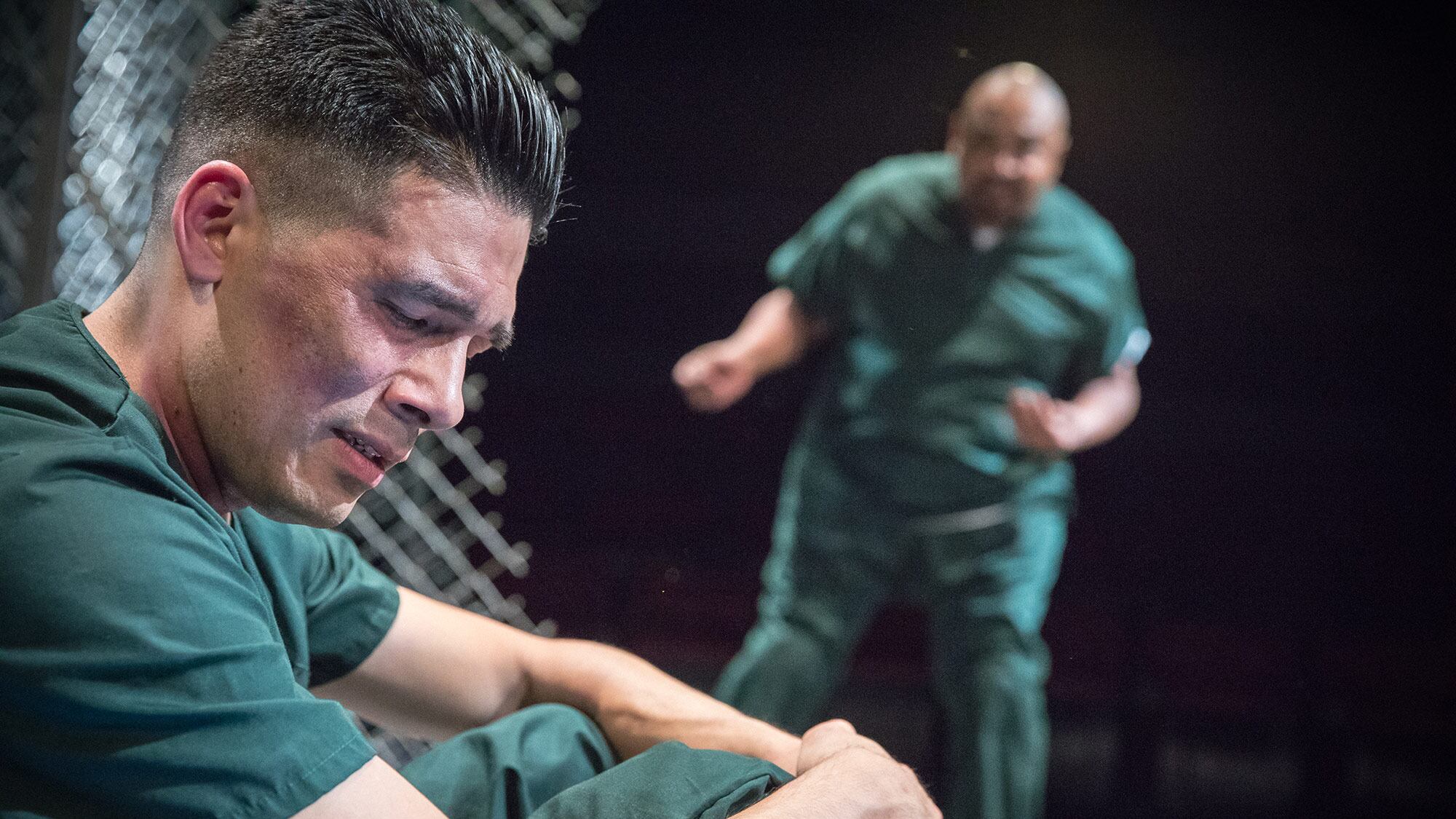Rikers Island is one of the largest jail complexes in the U.S., home to more than 10,000 inmates. Most live in the general population, but a small percentage are relegated to solitary confinement.
What would you think about if you spent nearly every hour of the day by yourself, isolated, in a locked room? Probably, you'd dwell on the factors that caused you to end up there and whether you deserved it. Pulitzer Prize-winning playwright Stephen Adly Guirgis' Jesus Hopped the 'A' Train is a play about two men, Angel Cruz (Anthony Lam) and Lucius Jenkins (Bobby Bermea), who are in that very situation.
Angel is new to solitary and Rikers, having been transferred into protective custody after a series of assaults on him by other prisoners. He's awaiting trial for attempted murder, though his crime seems forgivable—shooting an abusive cult leader in the ass to save a friend might even seem commendable. As Angel puts it, "I was trying to do a great right at the price of a little wrong." We have sympathy for the man, and so does his defense attorney, Mary Jane Hanrahan (Dana Millican).
In the next cell is Lucius, and even before he gives us the grisly details of his misdeeds—the slayings of eight innocent people—we can tell he's lived in solitary for a long time. The self-described paranoid schizophrenic, who's trying to avoid extradition, is social but guarded. Lucius, however, carries prayer cards with him, and is delighted to speak about his relationship with God any chance he gets, having used his time behind bars to seek forgiveness.
'A' Train is neither a straight-up legal drama nor a jailhouse drama, although it compartmentalizes certain genre elements. In scenes featuring Angel and Mary Jane, there's a bit of that procedural feel to it. New details about the case emerge, questionable decisions are made. But the script is more complex than that. When Lucius, the psychopath, interacts with the sadistic guard Valdez (Wasim No'Mani), we're forced to grapple with where to invest our emotions. It's also during these discussions that we get to see the highly rehearsed versions of the characters the inmates choose to present to the outside world—that is, the few hours per week they actually get to experience a world outside their cell.
That brings us to the yard, where we get to see Angel and Lucius together. Each man is allowed an hour a day outside in his own chain-link cage, about the size of a generous burial plot, and they talk. They're in solitary, so why not? Rarely do we get to face another person and see him in our shoes, and their dialogue here is the heart and soul of the play, forcing the audience to think about the many gray areas of truth and redemption.
Lam gives a stirring, sympathetic performance as Angel, a troubled young man whom you want to wish well. Bermea as Lucius is mesmerizing—a seething pit of doubt and regret, a monster of a man whom, ultimately, you also want to wish well. Scenic designer Rusty Tennant deserves a special shout-out. Those chain-link cages are the first thing you see when you walk in, and they loom ominously in the background, even in scenes in which they're not used, symbolic of the way they must loom in the backs of the minds of the men they sometimes contain.
'A' Train is a philosophical black hole of a play. You are swallowed into its vacuum. There won't be any answers, but there will be plenty of time to ask questions.
SEE IT: Jesus Hopped the 'A' Train is at CoHo Theatre, 2257 NW Raleigh St., cohoproductions.org. 7:30 pm Thursday-Saturday, May 9-11. $25-$32.

